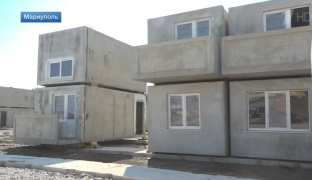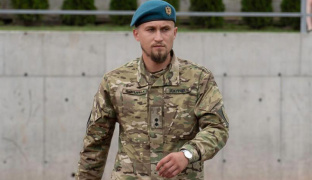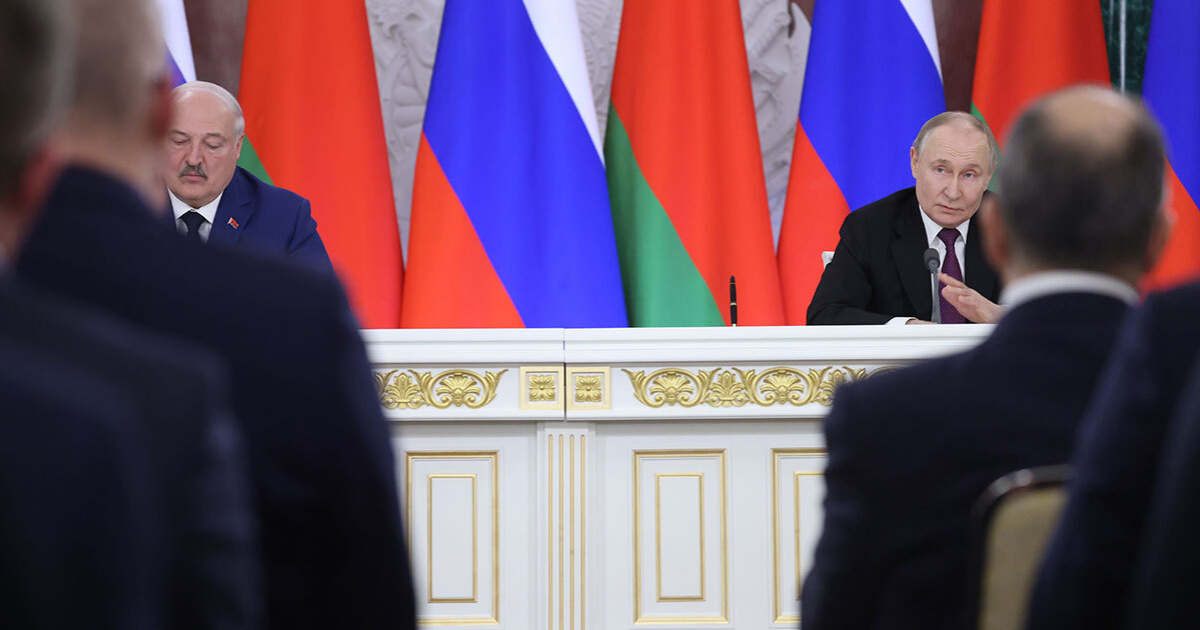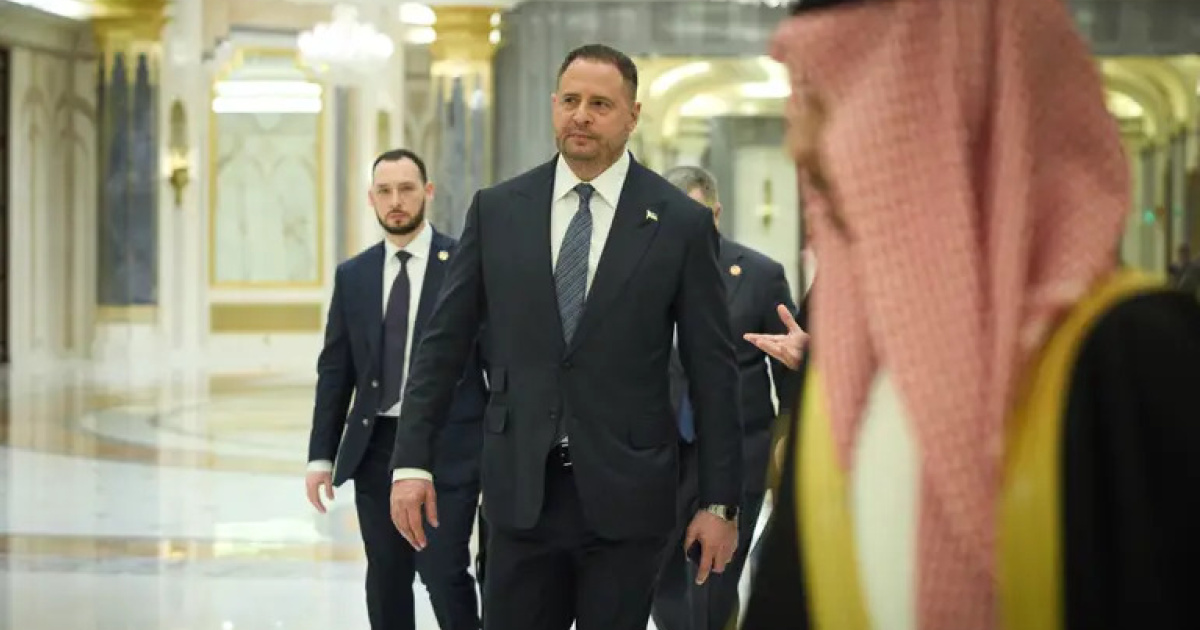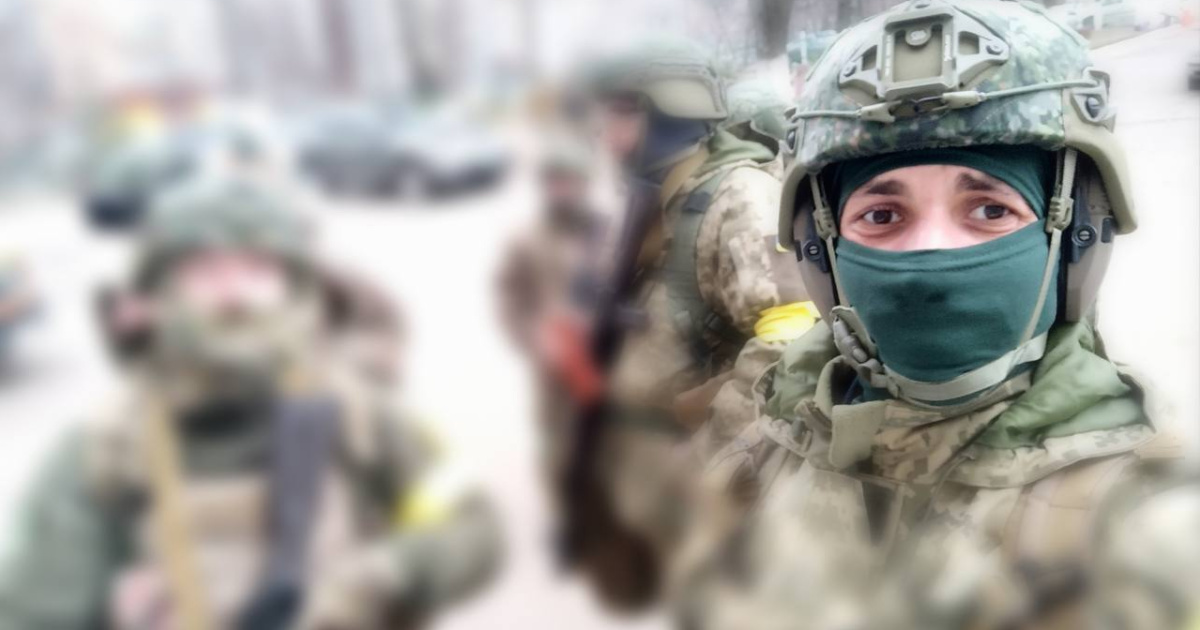
On October 18, 2024, another prisoner of war exchange took place. Ninety-five Ukrainians returned home. Among them was Mariupol defender Andrii Tretiakov, who was captured by the russian occupiers in May 2022.
He is currently undergoing rehabilitation, but even after 2.5 years in a russian prison, Andrii Tretiakov wants to return to the ranks of the Armed Forces of Ukraine.
In an interview with OstroV, he spoke about how he was captured, the torture methods russians use against Ukrainians, and why, upon returning home, he learned of an open court case and frozen accounts.
– Please tell us, what did you do in civilian life, and how did you become a soldier?
– Until 2015, I worked in Chornobyl as a self-employed entrepreneur. We were engaged in the construction of a new protective dome, which later covered the fourth reactor of the Chornobyl Nuclear Power Plant. I was responsible for assembly work. When my contract ended, I decided to join the "Azov" regiment in September 2015.
– As a volunteer?
– Of course. After a month of training, I arrived in Urzuf, in the Donetsk oblast, where our temporary deployment point was located. I dedicated three years to serving in this unit. I was discharged in May 2018, after which I started my own business. Specifically, an acquaintance of mine and I had a metalworking shop where we made metal products (stairs, etc.).
– Where were you when the full-scale war began?
– When the full-scale invasion started, I immediately joined the ranks of "Azov Kyiv" Territorial Defense Unit. We were based in the Sviatoshynskyi district of the capital. For an entire month, we carried out tasks within Kyiv and the oblast.
– What was your position?
– Infantry squad commander.
– How did you end up in Mariupol?
– After Kyiv, plans began for an operation to break the blockade of Mariupol. This was done on a voluntary basis. There wasn’t an official order, but there was a proposal for those who wanted to participate in unblocking the city. I agreed, but it later became clear that such a plan required coordination not only with our units but also with the Armed Forces of Ukraine. Moreover, developing such an operation took more time. So, I was offered to take part in something else: an airdrop into Mariupol. On March 20, 2022, I and 29 other guys flew to the city in two helicopters from Dnipro. We landed at "Azovstal" plant.
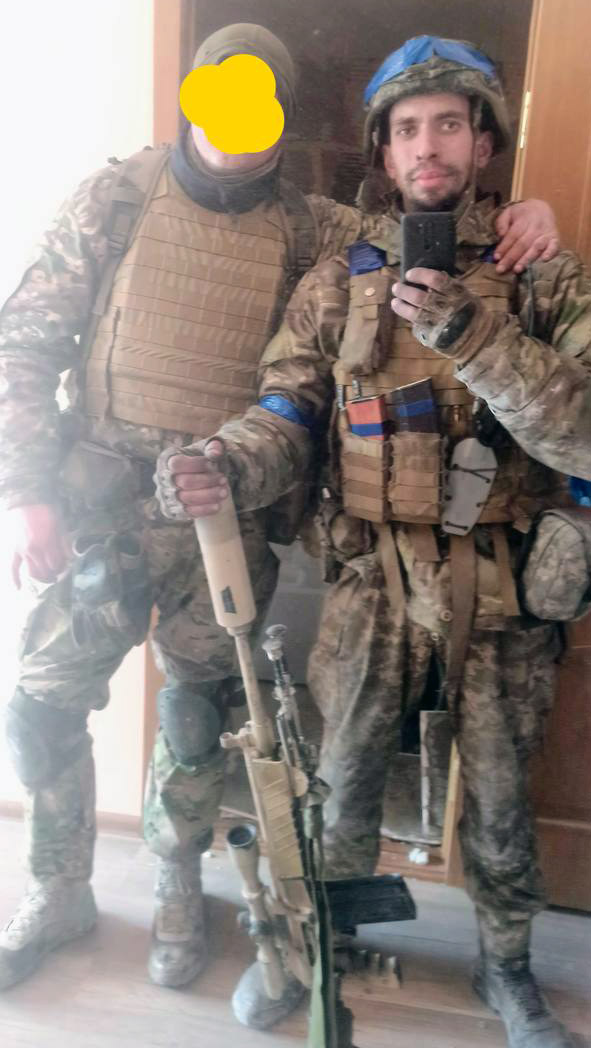
– What was the objective of this operation?
– First and foremost, it was to deliver communication equipment, anti-tank weapons, and to reinforce the Mariupol contingent. Additionally, we were tasked with buying time to develop a plan for breaking the blockade of the city.
But things turned out the way they did. The Mariupol blockade wasn’t broken, and I was already engaged in battles within the city. After that, we were transferred to "Azovstal" and then came the order to surrender.
– Can you recall the moment you heard the order to surrender?
– "Redis" (the commander of "Azov", Denys Prokopenko – ed.) gathered us all in the so-called "Dzherelo" bunker at "Azovstal" and conveyed the order from the President of Ukraine: to preserve the lives and health of the contingent, we had to surrender. We were promised 3-4 months of captivity, but as practice and history show, any agreement with the russians isn’t worth even the paper it’s written on. In the end, I spent 2.5 years in captivity.
– How did everyone generally react to the order to surrender?
– On one hand, there was a sense of regret; on the other, a bit of relief, as it was clear there was no other way out of "Azovstal" for us. Most people already understood that we were likely to stay there forever. Fighting our way out was practically impossible; such a plan was physically unrealizable. Furthermore, there were many wounded at "Azovstal" whom we couldn’t leave behind.
– Where were you taken?
– Initially, we ended up in a prison located in Olenivka, the Donetsk oblast. On September 27, 2022, we were transferred to Taganrog, russia; this was already a pre-trial detention center. After Taganrog, I was taken to a prison in Kirovske—everyone without criminal cases was moved there. In Taganrog, they tried to pin criminal cases on everyone, alleging some kind of war crimes. They couldn’t find anything to pin on me, so I was transferred to the town of Kirovske in the Donetsk oblast, where I remained until October 2024.
– How were you treated?
– When I arrived in Olenivka, the treatment was more or less acceptable. Yes, we weren’t fed properly, and there were issues with sanitation, hygiene, and water supply. But, overall, I wouldn’t say the treatment was entirely terrible. However, in Taganrog, the staff were very proactive. There were torture and abuse. To give you an idea, on the floor where my cell was, one of our guys died from exhaustion. The cells were freezing, especially in winter.
– How many people were in one cell?
– There were six of us in our cell. We were allowed outside once a week, and the walk lasted about one and a half to two minutes. Once a week, we were given water to wash—also just for one and a half minutes, and the water wasn’t always hot. Often, it was just lukewarm.
– What was the food like?
– The food was very poor: the portions were meager, and the quality of the food was as low as it could possibly be. For about six months, the main dishes consisted of rotten potatoes and cabbage—typically about 3-4 small potatoes per portion.
– Were any medical services provided?
– As for medical services, the situation was also difficult. There were cases where, for instance, people’s legs began to rot. If someone got sick with something like a respiratory infection, antibiotics were sometimes given, but this happened irregularly.
At one point, early on, I was bandaging a wound for one of our comrades. We had so few bandages that we had to use one for one person, then wash and dry it to use for the next dressing.
Later, I ended up in Kirovske (occupied Donetsk oblast – ed.), where the treatment was more or less acceptable. There were also interrogations, but they were conducted without particularly proactive representatives.
– Were the staff locals or russians?
– It’s hard to say; I didn’t check anyone’s passport. But as far as I understand, most of the staff were locals. Perhaps that’s why the treatment was somewhat better.
I’ve come to the conclusion that even Chechens treat prisoners of war better than russians. When Chechens came around, the treatment was more or less acceptable. The worst treatment we experienced was from russians in Taganrog.
– What kinds of torture do russians use against Ukrainians in captivity?
– They beat us with their feet, hands, batons, used stun guns, and tapiks (field telephones with an induction coil – ed.). They didn’t hesitate to connect the tapik to genitals and ears. This was done periodically, on average once a week during interrogations. They took us out of the cell one by one for questioning once a week.
– What were they trying to find out during these interrogations?
– They tried to pin war crimes on us, such as shooting civilians and destroying city infrastructure. The russians worked hard to fabricate testimonies.
– Ukrainian soldiers who have been in captivity have said they were forced to sing the russian anthem. Is that true?
– It happened regularly. I’d say it was one of the russians’ favorite practices.
– So, they made you perform the russian anthem twice a day?
– Yes, we were forced to sing the russian anthem in chorus. For instance, they might make us stand from 10 to 12 and sing russian songs. The same thing happened in the evening. It was tough. By the way, we sang not only the russian anthem but also songs like "Victory Day" and others.
– What if someone refused?
– It was better to just sing for those four hours than to end up in the operations department and face punishment there.
– Over the entire 2.5 years in captivity, were you ever visited by international organizations like the Red Cross?
– As far as I know, no one ever came. The russians didn’t allow anyone in.
– Was there any communication with the outside world?
– No. There was no news and no way to let your family know that you were alive, where you were, or how you were feeling. An information vacuum was created.
– How did you learn about the news?
– No one told us anything. Any news we got was at the level of rumors. It might have come from those who had recently been captured.
– How did you find out that you were going to be part of an exchange?
– One of the prisoners who cooperated with the prison administration came and told me I had been summoned to the headquarters. Then, when they took me to the medical unit, they documented the state of my health, ensuring my arms and legs were intact. They took various photos to record that there were no signs of beatings on me. At that point, I had a fairly good idea that I was going to be exchanged, but the administration didn’t tell me anything.
– How many people from your prison were included in the exchange?
– From the entire prison in Kirovske, only five people were part of the exchange. I was the only one from my barracks.
– Did anyone ask you to pass on messages to their relatives that they were alive?
– Yes, of course. The guys asked me to memorize their relatives’ phone numbers because we weren’t allowed to take notebooks or personal belongings. So, I tried to find their relatives on social media to simply let them know that their loved ones were alive. I did this in the first few days after I arrived in Ukraine.
– Where were you taken next?
– We were taken from Kirovske to Rostov. Along the way, there were many stops. We switched from one vehicle to another, gathering all the prisoners who were part of the exchange. In Rostov, they blindfolded us, tied our hands, and put us on a plane that flew us to Belarus. There, we were transferred to buses and taken to the Ukrainian border.
– Did your family know you were being exchanged?
– When I called my wife, she said she’d already known for two hours that I was free.
– Where did you go after returning from captivity?
– We were immediately taken to the central hospital in Kyiv. All the nurses who greeted us there treated us like family. I felt like I was an 8-year-old visiting my grandmother in the countryside. I spent a month in that Kyiv hospital. There were examinations, tests. At the same time, employees of the Security Service of Ukraine were working with us. They came to find out what had happened in captivity. We also collaborated with them regarding individuals listed as missing but whom we had encountered in the prisons. Thanks to these efforts, the status of two missing persons was updated to "prisoners of war".
– What happened after the hospital?
– I was transferred to a rehabilitation center in Bila Tserkva. Right now, I’m undergoing examinations and treatment, including working with psychologists.
– Did you face any bureaucratic challenges upon your return?
– Yes. For example, during my time in captivity, debts for utility services were accrued. Because of this, legal proceedings were initiated, and all my bank accounts are currently frozen.
– Legal proceedings were initiated against you for not paying utility bills while you were in captivity?
– Yes, I was taken to court, and the enforcement service froze my accounts. This is common practice. Yesterday, I asked for leave from the rehabilitation center, and now I’m running around these offices in Chernihiv. The services are cooperative. I’ve submitted several statements, and they promised to write off some of the debts and review others, eventually closing the case.
– Did the state provide any financial assistance after your return?
– The Ministry of Reintegration, which took care of us, helped us get passports and open bank accounts. In my case, there haven’t been any deposits yet, but one guy who returned with me has already received a payment—compensation for captivity.
– What are your plans after rehabilitation?
– I plan to return to the Armed Forces of Ukraine. I have a few offers from my fellow servicemen, so I’ll look at what vacancies are available. But right now, my top priority is to finish all rehabilitation procedures, and then I’ll decide.
– Do many people return to the military after captivity?
– I can only speak about the cases I’ve heard of. For instance, the officers I’ve talked to who were with me in Olenivka have all returned to their positions after captivity.
– You’ve been home for a month now, reading the news, talking to your comrades on the front line. How would you assess the situation?
– The situation is difficult, but we have to keep fighting. There are no dead ends—only a lack of will to solve problems. It seems to me that everything possible is being done right now to achieve victory. I’m more focused on what’s happening at the front than on the broader picture. I talk to my comrades who are now in the combat zone—their situation is tough, to be honest. But what’s the alternative? Give up and do nothing? That’s not an option. We have to keep fighting.
By Vladyslav Bulatchik, OstroV
